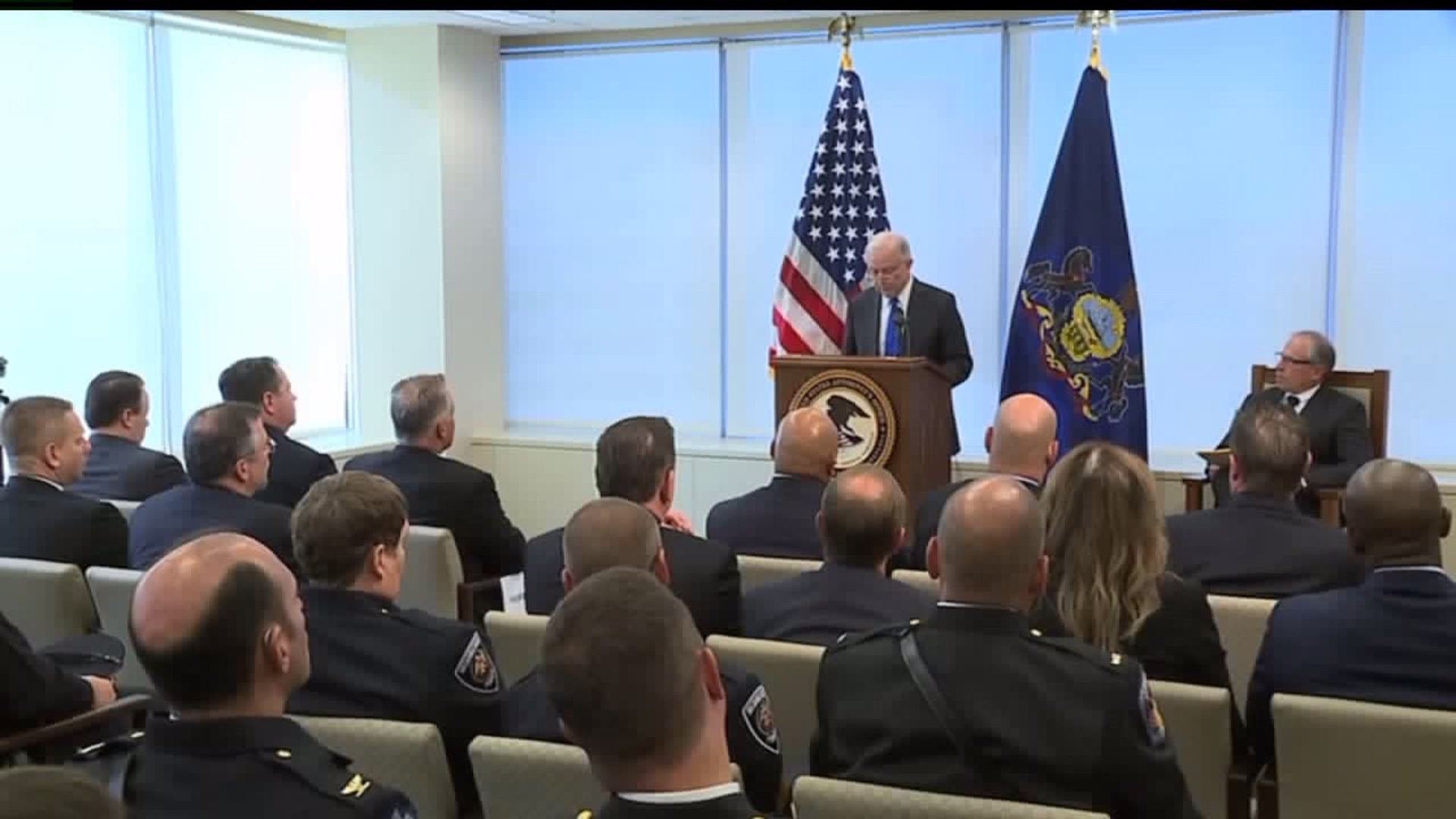HARRISBURG, Pa. -- Attorney General Jeff Sessions made a stop in Harrisburg Friday to announce new efforts to stop the opioid crisis.
Sessions has a three-prong approach to solving the opioid crisis, which includes prevention and treatment, but he spoke at the Federal Building to mainly address the third factor in that equation, law enforcement.
The attorney general was in Harrisburg to talk with local law enforcement about a growing drug problem.
"From '91 to 2011, opioid prescriptions nearly tripled in the United States. That is too high. We are prescribing too many opioid drugs, and it's got to stop," Sessions said.
"In 2015, Pennsylvania was sixth in the nation in fatal overdoses and nearly 80 percent of Pennsylvania counties had fatal drug overdose averages above the national average," Sessions added.
These numbers are not unfamiliar to local law enforcement.
Silver Spring Township Police chief Christopher Raubenstine said "in Cumberland County alone, we've had I think it was 61 overdose deaths already this year according to the coroner. And we had 80 some revivals using the Naloxone."
Sessions believes the effort to combat the crisis starts with local law police. The attorney general announced a nearly $20 million commitment to a grassroots effort to combat the opioid epidemic, nationwide.
Lancaster City Bureau of Police chief Keith Sadler said "obviously it's an acknowledgment that it is an epidemic of grand proportions, not just in the inner city, but throughout Lancaster County, as well as across the state."
Hampden Township Police chief Steve Junkin said "this is a health crisis, and we have to address the health side of things as well. The fact that the federal government is willing to work with state and local enforcement, and tackle this problem. It affects us at every level."
Another part of Sessions' plan to do that includes a data analytics program at the Department of Justice that will operate an opioid fraud and detection unit.
"This team will help us find the tell tale signs of opioid related healthcare fraud by identifying the statistical outliers. Fraudsters might lie, but the numbers don't lie. They show who's over-prescribing," Sessions said.
The attorney general believes the prescription drug problem is a winnable war.
"There are not that many corrupt doctors and pharmacies, and hospitals that are allowing this to happen. If we focus on them, we can shut them down. We must shut them down, and we will shut them down," Sessions said.
The opioid crisis is one epidemic that not only affects law enforcement, but touches everyone, one way or another.
"We have crime that is associated with it, people gave to get money in order to satisfy their fix, so we're seeing a lot of crimes. We're seeing break-ins. There are some assaults that are associated with it," Junkin said.
"Prescription opioid addiction alone, costs our economy some $78 billion a year, and that illicit drugs cost us a total of about $193 billion a year," Sessions said.
It's why the attorney general says the Trump administration is making a commitment to stop the opioid epidemic by teaming up with local police.
"It's really zapping our resources, and those resources then take away from our ability to do other things," Junkin said.
"For me to put an officer on that full time, for neighboring jurisdictions to do the same thing, we have to afford that salary. How do we do that? Hopefully through some of these grants we can afford to put people out there doing those things and getting this issue under control," Raubenstine said.

